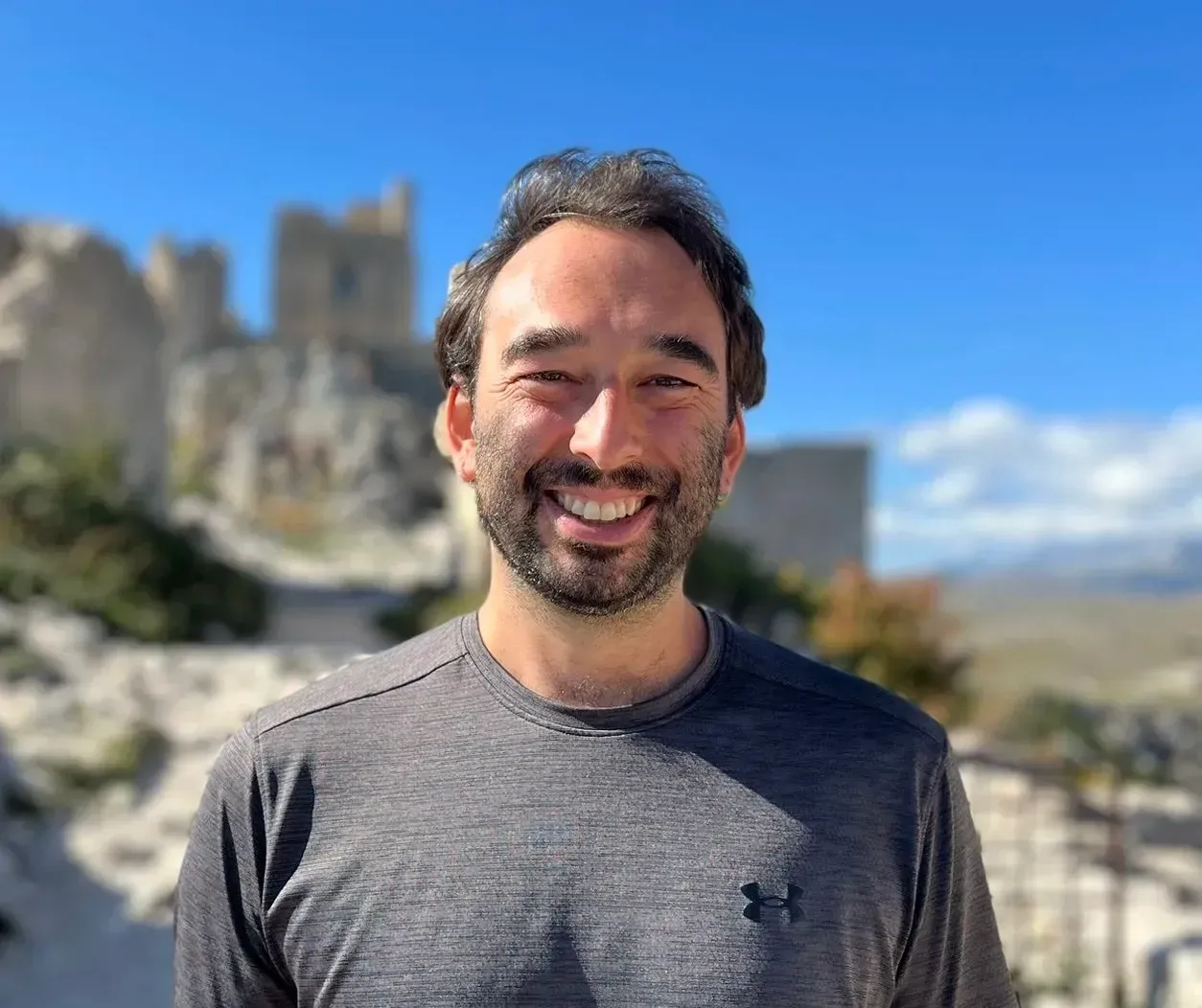
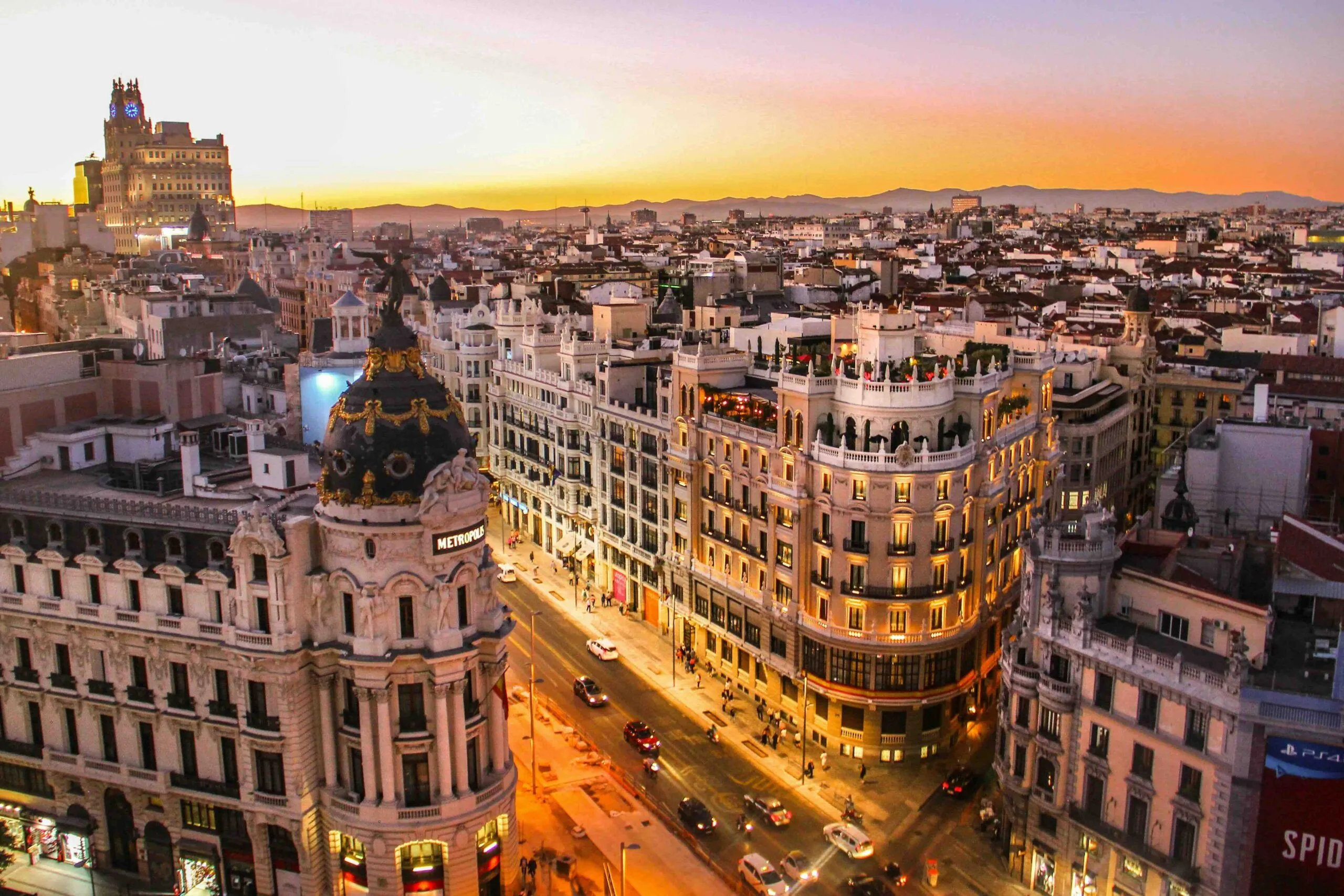

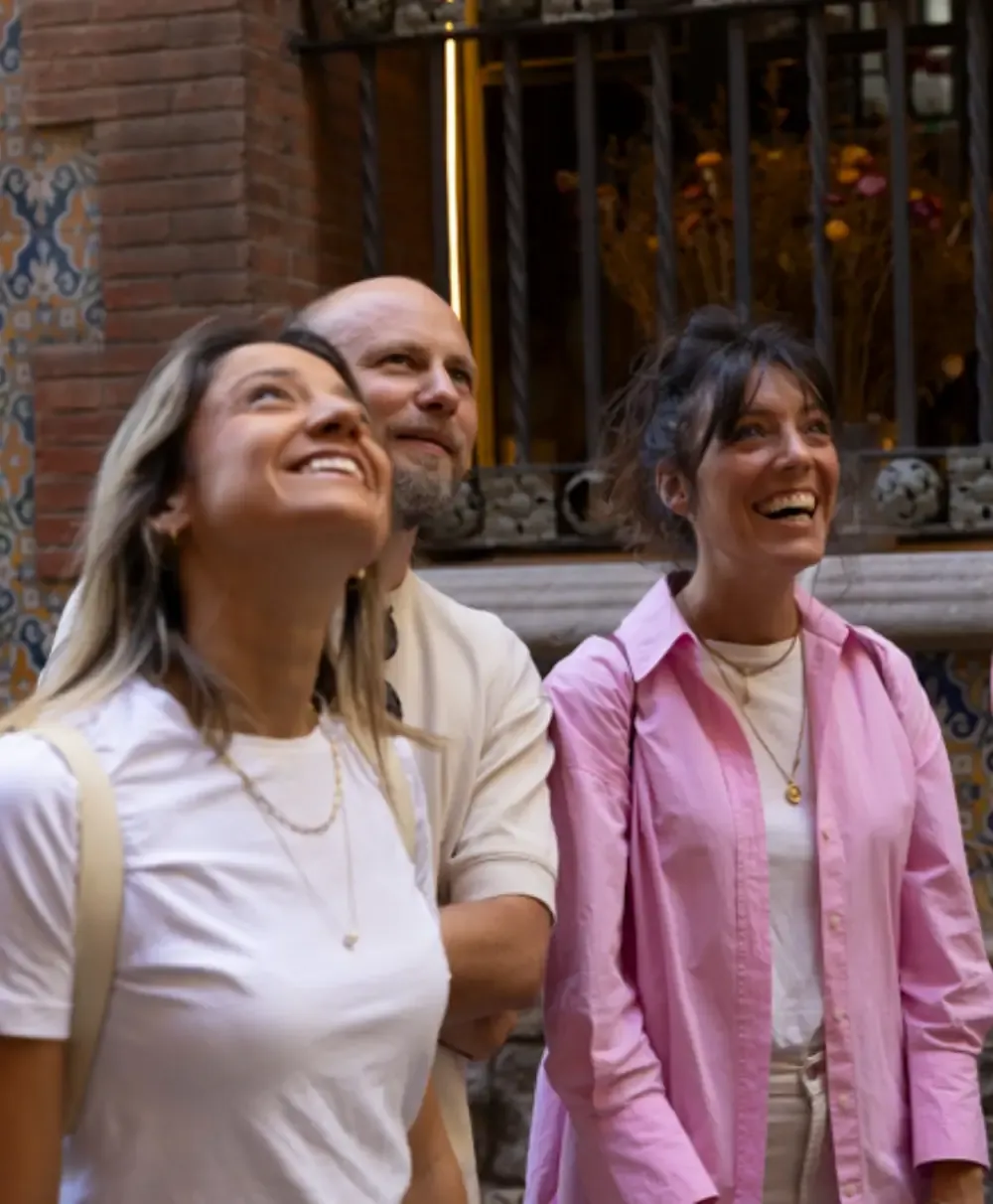
Barcelona, the regional capital of Catalonia, is a proudly cosmopolitan city. Visit and you’ll find a melting pot of Mediterranean cultures situated on the shores of the Balearic Sea and bordering France, Andorra and—as many Catalans would contest—Spain.
Barcelona is second only to Madrid as the second most active economically-active city on the Iberian peninsula. But Barcelona edges Madrid as a tourist destination as it taps into a richer, more illustrious vein of history, boasts stunning beaches with warm Mediterranean waters, and is home to some genuinely stunning architecture.
Demographically, Barcelona is remarkably diverse. According to the city’s Municipal Register, foreign nationals account for 26.3% of Barcelona‘s residents (around 400,000 inhabitants). These people represent some 177 nationalities, of which the largest communities are Italians, with over 45,000, Colombians (23,000), Pakistanis (22,800) and Chinese (20,000).
Barcelona has two official languages: Catalan (català) and Spanish/Castilian (Castellano).
While most Catalans are bilingual, meaning they can speak both Catalan and Spanish fluently, which language they decide to speak can be a sensitive political subject. Some Catalans see Spanish as the language of the colonial oppressor, and so prefer to speak Catalan wherever they can help it. The Catalan Independence Movement is always simmering beneath the surface and sometimes boils over into the European or international news.
Catalan is the name of the official language spoken in Catalonia and Valencia. Linguists categorize it among the ‘romance languages’, not because it sounds romantic (although it definitely does) but because it falls within a family of languages that are rooted in later Latin, the language of the ancient Romans.
The big five romance languages are French, Italian, Spanish, Portuguese and Romanian. But Catalan also features, together with several similar lesser-known languages, such as Occitan, which is spoken in Southern France, Monaco and Italy’s Southern Alps. If you’re a visual learner, and like your information visualized through trees, here’s a helpful little infographic showing how these languages evolved.
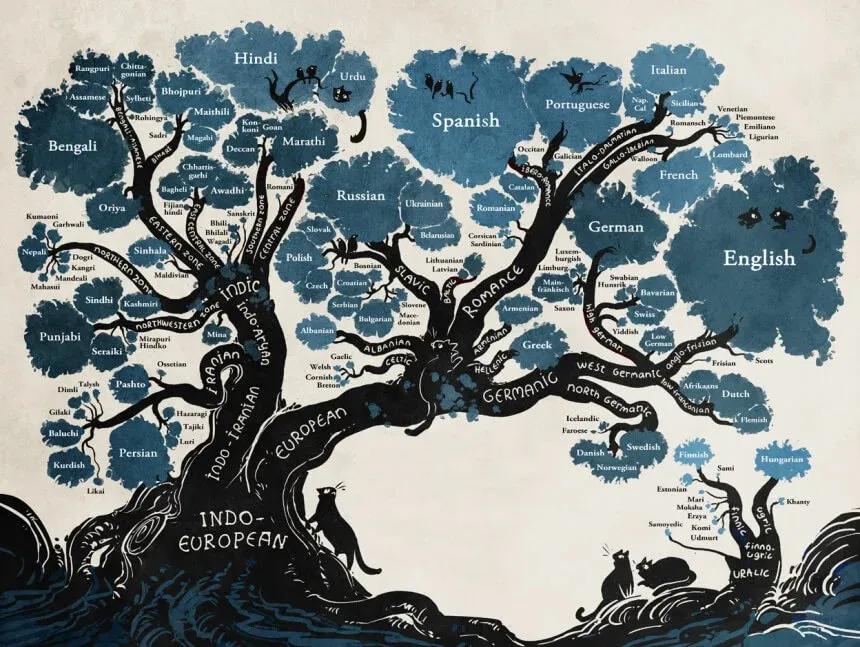
The evolution of Indo-European languages
Catalan is the language in which people in Barcelona and beyond conduct many aspects of their daily lives. According to a 2021 survey from the Statistical Institute of Catalonia, 67.7% of the population speak Catalan at home with their families (33.9% always, 15.6% frequently and 18.2% sometimes) 77.6% of the population speak it with friends (26.2% always, 28.2% frequently and 23.3% sometimes) and 79% use it at work or school (27.9% always, 32.6% frequently and 18.6% sometimes).
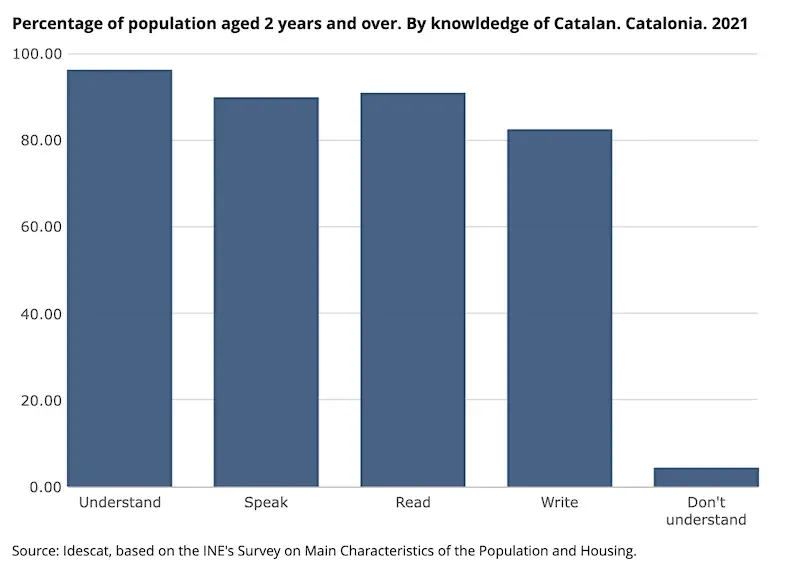
Percentage of the region's population who speak Catalan
Schoolchildren in Barcelona and the wider region are usually taught in Catalan, and they learn Spanish as a compulsory second language (usually along with English). According to a 2021 survey by the Catalan Statistical Institute, 72.9% of Catalans speak English to a conversational level, a testament to an excellent education system (by contrast, just over a third of Italians speak English).
Even when university classes are held in Spanish and Catalan in universities, Catalan is used as the institutional language and in administrative affairs. Catalan is also the vehicular language of the local authority’s bodies and institutions. If you’re planning on living in Barcelona for any significant length of time, Catalan is the language you should learn.
French and/or Italian speakers might notice that Catalan grammar and vocabulary bear closer resemblance to these languages than it does to Spanish. Here are 10 basic phrases to listen out for and try for yourself!
Looking to learn some Catalan phrases quickly? Check out the playlist below
With Catalan infusing so many aspects of daily life in Barcelona, where does this leave Spanish speakers?
Surprisingly, a higher percentage of Catalonia’s population speak Spanish as a first language, as a survey from 2021 revealed. Some 3.545 million (47.5% of the region’s population) speak Spanish as their mother tongue while Catalan has 2.178 million initial speakers (29.2%) of the population. About 879,000 people (11.8%) speak both fluently from childhood.
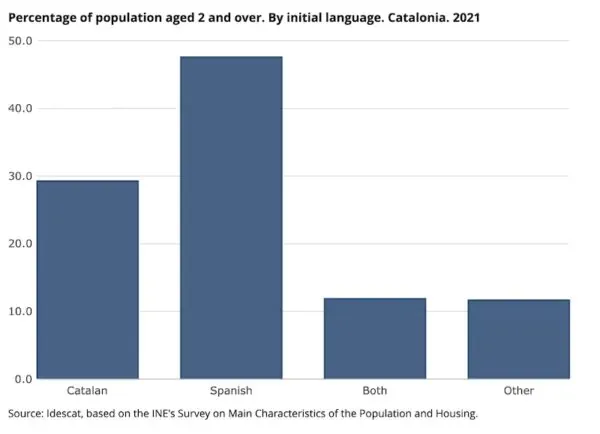
Percentage of the region's population by first language
Spanish, of course, has a wider global base. As of 2023, it’s estimated that there are 486 million native Spanish speakers, making it the second-most spoken language by number of mother-tongue speakers. Many of us have a smattering of Spanish already. But if you’d like to brush up before your trip to Barcelona, here’s a survivor’s list of 10 easy phrases:
Looking for the best place to practice your Spanish or Catalan? Join like-minded travellers on a night out in Barcelona! Here are the best nightclubs in Barcelona to practice the local lingo.
If you’re packing your bags for Barcelona but are worried about making yourself understood, don’t worry. English and/or Spanish will get you by just fine. But if you’d like to win over your Catalan hosts with a sprinkle of the local lingo, why not learn a few Catalan phrases!
Just a simple “bon dia” (good morning) “si us plau” (please) and “merci” (thank you) will go down great with the locals, who pride themselves in their culture and language and love it when foreign visitors make an effort.
While exploring Las Ramblas on a Barcelona Walking Tour or navigating the atmospheric alleyways of the Gothic Quarter, you'll likely hear a cosmopolitan blend of Catalan, Spanish, English and other world languages. Such is the beauty of living in such a bustling European city — and we absolutely love it!
Our Small-Group Barcelona Tours offer the most exciting, authentic way of exploring the Catalan capital with expert local guides and fun-loving travellers.
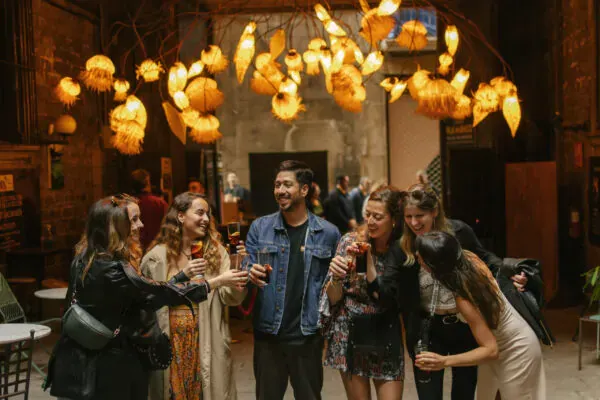
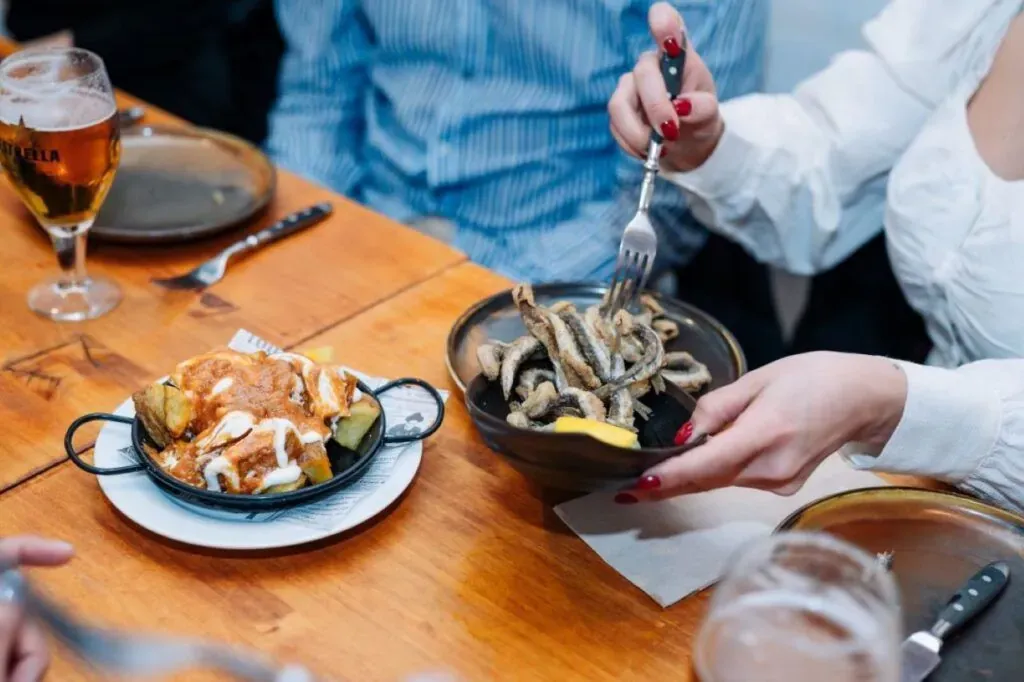
Group on a Barcelona Tipsy Tour
Dish from our Tipsy Tapas Tour
Food lovers should check out our Tipsy Tapas Tour, which blends all the best of Barcelona’s culinary culture with tastings of the region’s best-loved traditional drinks. Partygoers should reserve a spot on our famous Tipsy Tour, a unique, European-wide experience that combines all the best aspects of travel: scandalous stories from history, local drinks, and a chance to meet fun, like-minded travellers.

No headings found in content.

The Barcelona Tipsy Tour is the perfect way to meet other adventure-seekers, sip the finest Spanish drinks, and immerse yourself in Barcelona’s iconic nightlife while learning secret history that the locals don’t want you to know.
Forget your dry, standard city tour and live your best life while travelling. Our tour puts the “bar” in Barcelona and it’s 18+, but not just because of the booze. You’re going to find out the city’s best kept secrets and forbidden history that they definitely leave out of the tourist guidebooks. If you’re a sober traveller but you still want to join in the fun don’t worry! We’ve got alcohol-free beverages you can sip on while you enjoy the company of your new friends.
After a warm welcome, we’ll get started in El Born. A chic, trendy neighbourhood with great nightlife–and a scandalous past.
You’ll sip some vermouth (aka sunshine in a glass) and learn some of Barcelona’s most twisted secrets. Discover the undercover lives of its former residents and be wowed by forbidden stories as we follow in the footsteps of where these events played out. There are ghosts, secret graveyards, and sex of all sorts – but we’ll leave it to your guide to tell you the rest.
We’ll discover some of Barcelona’s most vibrant bars and neighbourhoods. Try some unique white sangria – very hard to find but oh so easy to drink, and sip other authentic tipples as you hear about the history behind the city’s favourite drinks.
Then, a surprise. Try a shot of traditional Catalan liqueur and see how well you do, then wash it down with a famous cocktail to really get the night moving. As you’re drinking, dancing and singing, we’ll be mixing up a cocktail of our own with a splash of history and a spritz of legend. These stories are so good, you’ll even remember them when you’re fighting a hangover the next day.
When the tour is over, the night out officially begins. We’ll enjoy Barcelona long into the night, making unforgettable memories with our newfound friends.
Spaces fill up fast, so book your Barcelona Tipsy Tour today!

There’s a reason why Barcelona is one of the most beloved cities in Europe; art, architecture, history—what more could you ask for? The best way to see the city is through this Barcelona Walking Tour, with a local guide who will lead you through the whimsical streets of the Gothic Quarter and share a fascinating history spanning 2,000 years.
As you walk along the route you’ll see the city’s evolution starting from Roman-occupied Barcino through the Golden Age and all the way to the Barcelona that we know and love today. We’ll visit some must-see sites like the Barcelona Cathedral where you’ll hear about the brutal death of the city’s patron saint or Placa del Rey, where you’ll learn about the darker side of Spanish history during the Inquisition. Along the way we’ll also see some hidden gems and hear about urban legends.
By the end of this Barcelona Walking Tour you’ll have gained a new perspective into Catalan tradition and history that will leave you falling in love with Barcelona.
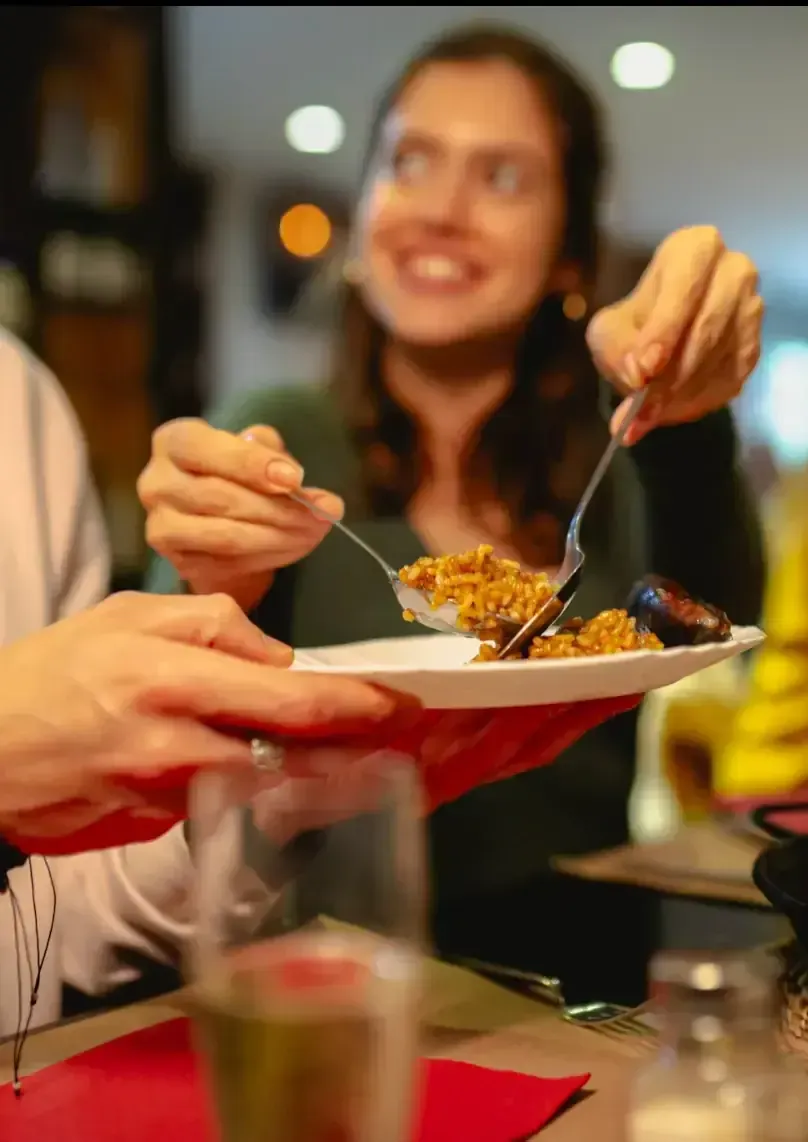
Taste your way through the Catalan capital on our award-winning Barcelona Tapas Tour. We’ve handled the details so you can skip the crowds and go straight to the good stuff: real Spanish cuisine made by locals. Food is an essential part of Catalan culture, and no trip to Barcelona is complete without sharing tapas or “small plates.” Over two and a half hours, you’ll visit four of the city’s best tapa hotspots where you’ll try a variety of traditional tapas and drinks, meet the locals who make them, and see hidden cultural gems along the way.
We’ll explore two of the city's trendiest, historic neighbourhoods. See Roman ruins in the Gothic Quarter before heading into El Born to window-shop at artisanal shops and art galleries, marvel at the Basilica de Santa Maria del Mar, and wander through picturesque squares. In between sights, try small bites like spicy patatas bravas, fresh pimientos de Padrón, and crispy fried fish paired with local wine, vermouth, and cava. From crunchy croquettes and unique Basque pintxos to paella and a Catalan dessert, you’ll treat your taste buds to the best of Spanish gastronomy and Catalan classics and learn about the history and evolution of this world-class cuisine.
Whether you're on a family holiday, a team-building with colleagues, or a romantic couple's retreat, this is the best way to meet people with a passion for food. It's also especially good for solo-travellers who might otherwise miss out on the opportunity to sample an array of small plates when eating alone, so book a tour and get to sharing!
